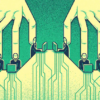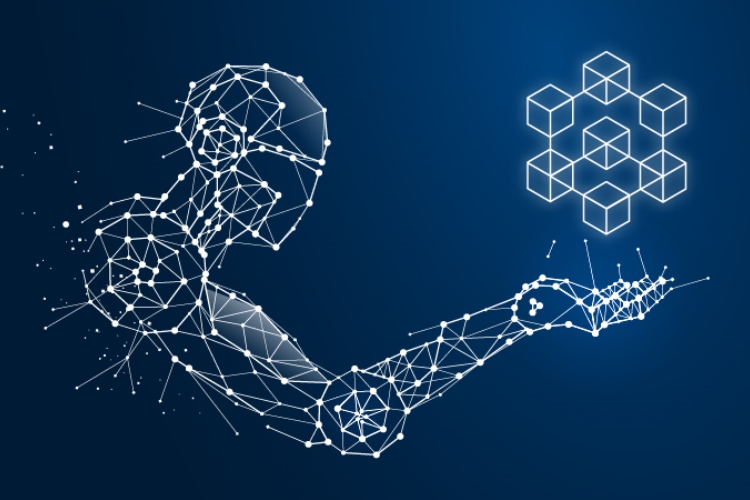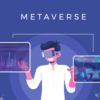The use of artificial intelligence (AI) is diffusing, making it one of the broadest technological revolutions ever. Blockchain technology has the unique ability to improve the reliability of AI training data and secure AI implementations through smart contracts and on-chain governance.
Data is the new oil
The key lies in computing systems’ ability to extract meaning from large data sets, or training data. For a complex task, a system uses machine learning to identify mistakes and retry actions to achieve its goal — and can reference past errors in future decision-making processes. Technology giants are investing billions in AI research.
Machine Learning (ML) requires massive amounts of data to accurately develop. There are some public data sets, but they tend not to be as insightful as the ones owned by a handful of large tech companies like Google and Facebook. With gigabytes’ worth of data per user, they are the gatekeepers to AI development.
How can we democratize these data so developers can gain access? Could a decentralized marketplace help achieve this in a trustless manner?
Immutability and decentralization: opportunities for AI
Blockchain is a distributed database stored by parties in a decentralized network. The past years have seen an explosion in attention in the space, with hundreds of billions’ worth of cryptocurrency purchased and traded. There’s no better time than now to begin understanding the powerful abilities of the blockchain.
The seemingly simple idea put forward in Satoshi Nakamoto’s Bitcoin white paper unveiled a whole new realm of interactions. Rather than put our trust in individuals and enterprises prone to human error, let us trust the objectivity of cryptography and mathematics. Two of blockchain’s most powerful characteristics are its immutability and decentralization. Both present opportunities to improve AI’s centralized state.
Blockchain’s Immutability
To ensure quality, AI training data must have a clear audit trail. Blockchains can store data immutably. On the Bitcoin platform, for example, “miners” broadcast and confirm a valid transaction, which can’t be changed or reversed without immense computing power and money. This provides confidence — and can translate to secure data points available for analysis.
We realized AI may reinforce cultural and social biases embedded in the data sets. Google faced backlash when its photo app used offensive tags in image recognition. So did Microsoft when its Twitter chatbot used unverified, inappropriate input data to determine responses.
In current solutions, external parties aggregate and sell data. But these data cannot truly be audited for accuracy. Companies relying on this information to make key decisions do so at their own risk. Retailers such as Nike have been investing in data analysis tools. Multiple parties sell Nike’s products; the data are not stored in one place. Data from each channel could be hashed and uploaded to a shared blockchain, so Nike could trust that data used in its model is unaltered.
Blockchain technology may help provide AI models with a high-quality, transparent stream of data, available securely and only to parties involved. There’d be no central entity or aggregator. Computers’ ability to forget nothing is incredibly important for AI. AI, supplemented by blockchain, will allow us to understand a problem or pattern as no human could.
Blockchain and democratization
Our identities are increasingly becoming linked to data that may not be accurate or securely kept. Centralized systems such as Amazon, Facebook, and YouTube capture and control our data; our digital identities too often are compromised, sometimes without our knowledge.
Blockchain has potential to enable ownership of personal data and to democratize data availability. Instead of a handful of corporations controlling the data needed by AI models, what if we could share data among participants under a blockchain governance protocol? No central party would control, aggregate, or remove data, decreasing chances of manipulation.
A major issue behind using data for AI is privacy and sensitivity of the content. Smart contracts have potential to help govern data usage in an AI environment. The ability for a smart contract to face “computational scrutiny” without relying on a third party could lead to new governance platforms.
Governance details behind a particular data set could be stored on chain for interested parties to verify. This is incredibly important as data privacy laws come under greater scrutiny. Rather than a mesh of centrally aggregated data, a company could extract the data sets relevant to its needs, verify the data, then use the sets according to governance rules in the on-chain smart contract. Network participants could be voted out for malicious behavior.
Decentralized artificial intelligence (DAI)
Besides applications in these centralized solutions, blockchain also has potential in a decentralized AI system. Decentralized artificial intelligence (DAI) analyzes the interaction and activity of autonomous agents. DAI tries to understand how agents distribute themselves, interact, and adjust to changes in their environment, without the oversight of a central body. An entirely new and autonomous data ecosystem could emerge.
Imagine a system that tracks the number of photos taken by a group of smartphones in a given period. Distributed AI still depends on a central entity to use the data carefully. But what if agents — sensors embedded in cars or factory equipment, say — could begin learning and transacting with one another? That’s where the combination of AI and blockchain gets really exciting.
DAI and blockchain’s role
In DAI, a multiagent system could emerge: An autonomous car may be able to pick up riders; earn fares; negotiate and pay for insurance, maintenance, and gas. Through AI, the car could learn trends such as where rider densities are high, what mechanics offer the best pricing, and the best routes through new areas. DAI needs an operating platform; were this run by a central entity, the agent could be compromised through a back door.
Blockchains are run by the nodes themselves, which govern the network and must approve changes. Autonomous agents could function as voting nodes and help direct the future of the protocol. They could interact without having to trust each other.
In a more decentralized world, autonomous agents could move from one data source to another, leaving an auditable trail. Imagine a massive number of nodes contributing to a data commons of sorts. Data hashes would provide an important level of trust that the data has not been tampered with for the agent’s benefit. Governance protocols could add incentive layers to reward honest nodes and penalize malicious ones.
Autonomous agents as AI representatives?
One possible economic structure could be the use of delegated proof of stake (DPoS), a consensus mechanism. Each token holder in these blockchains can vote on a representative; a group of nodes, between 10 and 100, are the sole individuals who can validate transactions in the network. Autonomous agents could begin representing other autonomous agents as delegates.
These delegates would have to “stake” some token in reserve, which would be slashed if the agent acted maliciously. Imagine a system where one autonomous car is elected to represent others for better bargaining power over insurance policies. Each transaction would occur on the blockchain so other agents could verify that the delegate is acting in the network’s interest.
Toufi Saliba — CEO of Toda.Network — described a future system where “machines can ensure each other’s governance accordingly; the machines, they can compete between each other.” A group of autonomous agents would run the system: each providing resources for the greater good while being rewarded for its individual efforts.
Looking to the future: Decentralized Autonomous Organization (DAO)
Autonomous agents can make their own decisions and learn over time through trial and error without human intervention or risk of human error. But can we create something more complex than an autonomous vehicle? Will there be distributed economic entities approaching complex corporations, run on the blockchain?
That is where the idea of a decentralized autonomous organization (DAO) comes into play. A DAO is an entity run entirely by its stakeholders rather than an executive team. Any stakeholder can propose a change to the organization’s actions or structure with other stakeholders voting. An ambitious future would have organizations running on their own, making business decisions, hiring employees, and responding to market changes.
Imagine a toy factory that knew when to order raw materials based on plastic production in China. The factory would analyze trends from millions of websites to know what toys and how many to produce. It would optimize its equipment, contact global buyers, negotiate to achieve target profit margins, ship toys, and take payment. It would also track its earnings and analyze competitors in its goal to become a market leader.
Challenges with blockchains
Blockchains provide a variety of use cases for AI development, but there are challenges with using a decentralized system. For example, one of the most pressing issues with a blockchain is the issue of scaling.
The most pressing issue: scalability
As people and things generate more data, storing those data in a decentralized manner can be challenging. Public blockchains are very expensive for storing vast amounts of data; quickly retrieving and distributing those data can be computationally intensive. Current blockchain solutions do not offer the scalability needed for such types of aggregation and computation.
Innovators are developing solutions. One is the InterPlanetary File System (IPFS). Users download IPFS protocols for storing and indexing files on their own and each other’s devices, in a distributed network. Its storage capacity grows with the number of users and the available space on their collective machines.
Users can host data and create a hash of the data set, so others can locate and access the nearest copy. When an application needs to reference a large data set, it could refer to just the hash of the data rather than the whole data set. The hash should always match the data set, unless the set has been altered.
Governance of these blockchain
AI will require myriad data from various sources, but data owners will want to keep those data private and secure on the blockchain, so that only permissioned parties have some level of access. We could see some integration of homomorphic encryption, which allows engineers to use data sets for training without compromising the confidentiality of those data.
User data stored on an immutable ledger may become problematic. What if governments placed limits on the types of individual or household data that organizations may collect and use for commercial purposes? How will we remove data sets that are supposed to be immutable? Or is it a matter of changing the smart contracts governing access and usage of such data?
Blockchain and AI together form an exciting frontier. An immutable, decentralized ledger providing an auditable data source for hungry AI models could vastly improve if not revolutionize existing models. But there’s still plenty of work to be done before this enterprise capability is ready for mass deployment.




